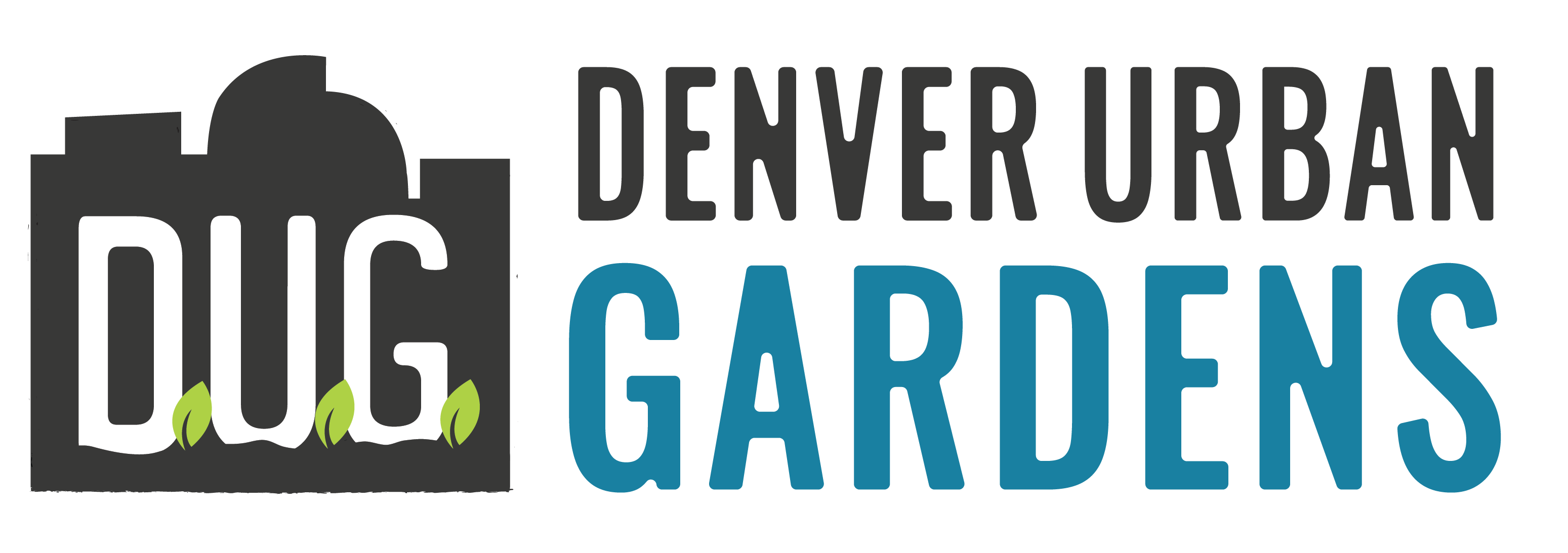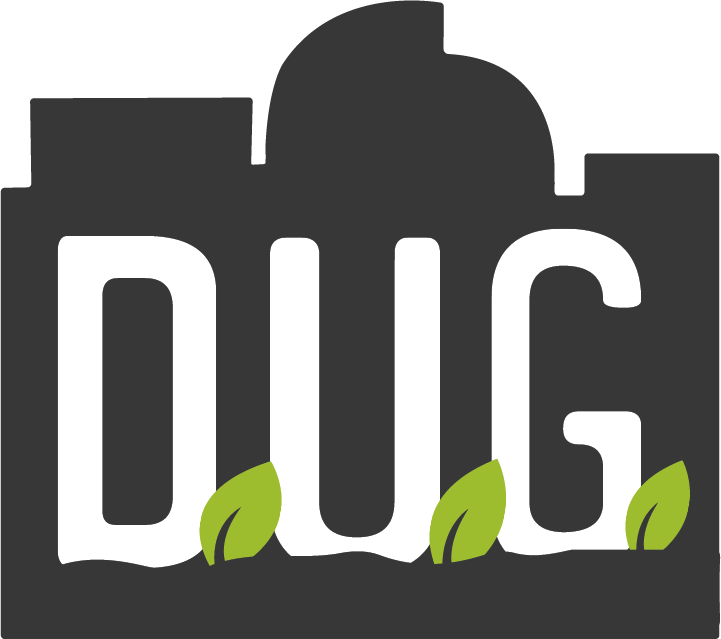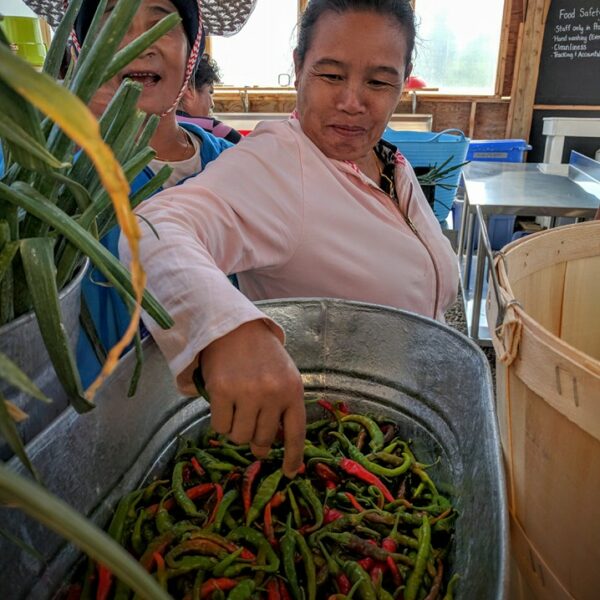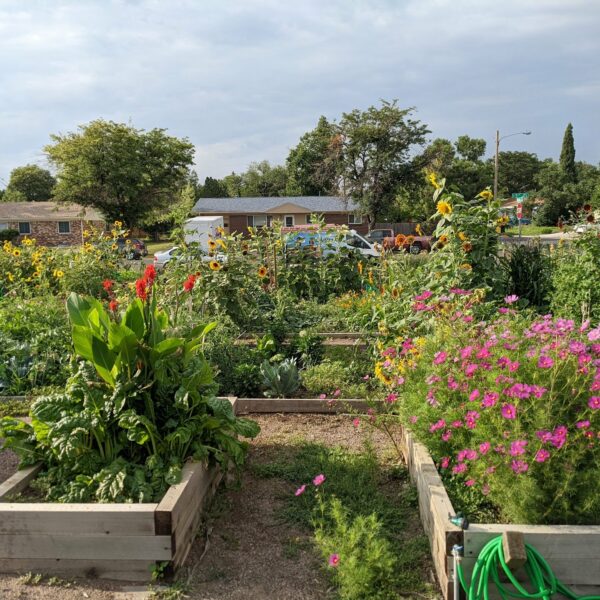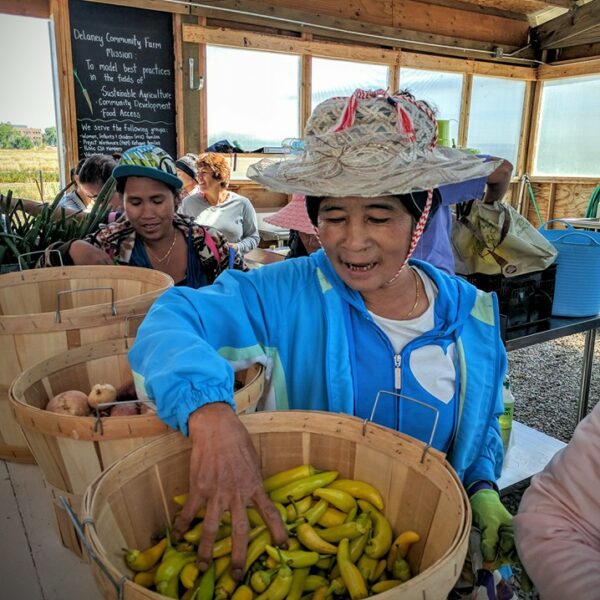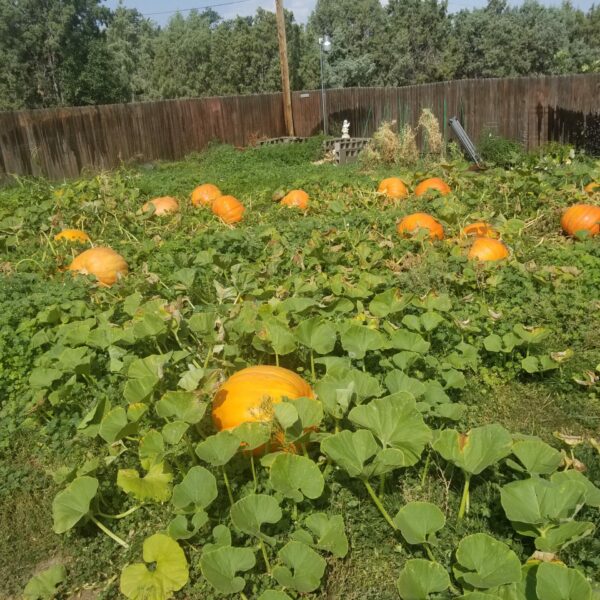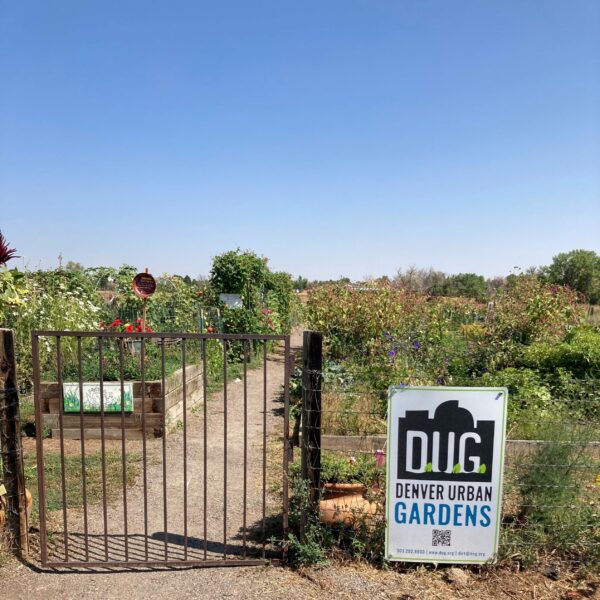Overview
DeLaney Community Farm is a partnership between Denver Urban Gardens (DUG) and Project Worthmore (PWM). Our mission for DeLaney is to support refugees through sustainable agriculture and community building.
The primary goals of DeLaney are to:
- Provide the space, support, resources, and expertise for refugees to grow healthy, organically-produced food for themselves and their broader community;
- Foster community development and integration through education and training programs, and relationship building;
- Connect refugees to the local fresh food economy and promote economic resiliency through meaningful and dignified experiences;
- Demonstrate small-scale, sustainable agricultural practices that reconnect refugees with the land in a productive and environmentally responsible manner.
History
DeLaney Community Farm sits on the 158-acre historic property, DeLaney Farm, located at 170 S. Chambers Road (between 1st and Alameda), on Aurora Parks & Open Space land. The farm is situated on one of metro Denver’s most scenic and rare pastoral areas and is accessible by Highline and Tollgate Creek bicycle and pedestrian trails, cars, and bus. If you are interested in learning more about the historic DeLaney Farm, please contact the Aurora History Museum.
DeLaney Community Farm was established by DUG in 1997, in partnership with the City of Aurora. Since its inception, the farm has served public CSA members, families from Women, Infants and Children (WIC), refugees from PWM, interns, apprentices, and farmers.
At its full expression, the DeLaney Community Farm will practice integrative farm management through the demonstration of regenerative farming practices while producing an abundance of fresh, nutrient-dense organic produce for local restaurants and the public through a low-cost CSA.
In 2022, the management of DeLaney Community Farm was transitioned fully to Project Worthmore. While DUG still holds the land use agreement, Project Worthmore is spearheading progress and maintenance of the project.
Sustainable Practices
DeLaney cultivates approximately 3 acres of mixed vegetables, herbs and flowers.
DeLaney grows a variety of vegetables that are appropriate for our dry, windy climate. We grow nearly 30 different types of vegetables (and over 100 different varieties). We grow vegetables that do well in our unique bioregion at DeLaney Community Farm: arugula, asian green, bush beans, beets, cabbage, carrots, corn, cucumbers, eggplant, kale, lettuce, onions, hot peppers, sweet peppers, potatoes, radish, rutabaga, summer squash, winter squash, swiss chard, tomatoes, turnips, and herbs.
DeLaney integrates sustainable practices into our farm operations including organic growing practices and agroecology principles (also known as ecological agriculture). We utilize and experiment with research- and scientific-based methods to increase yields, while also protecting the environment and increasing biodiversity.
DeLaney focuses on integrated pest management, water conservation, experiments in soil conservation, cover crops, crop diversity, nutrient management, intercropping, companion planting and more. At DeLaney, it is essential that we strive to be excellent stewards and work to create a healthy ecosystem.
Equally as important, we strive to model strategic farm planning, organizational management, mentoring, and detailed scheduling that results in a manageable farm-life balance for our Community Farmer Trainees.
The apiary at DeLaney includes beehives in two areas of the farm, and serves to improve pollination and harvest yields from many of the flowering vegetables and fruits grown at the farm. The apiary also serves as part of the educational mission of DeLaney. As part of your visit, you may be invited to peek into the observation windows of the hives closest to the barn, and see the bees hard at work. Always remember to not stand directly in front of the hive entrances, as this can disturb the bees!
Impact on the Refugee Community
Yu Meh Community Farmer Training Program
The Yu Meh Community Farmer Training Program is an intensive educational training program, designed for refugees, in the areas of sustainable farming and community food security. Project Worthmore (PWM) recruits Community Farmer Trainees.
Community Farmer Trainees learn all aspects of sustainable community farming including best practices for organic agriculture and agroecological farming, CSA management, food safety, volunteer management, and leadership. The program combines hands-on work experience with more formal instruction. In addition to technical training and education, Community Farmer Trainees are provided with a monetary stipend and farm membership, which includes a weekly share of the fresh produce grown.
Community Farmer Trainees may be chosen to continue the program as a Community Farmer, based on leaderships qualities cultivated and the desire to further the learning process. Community Farmers become valued and trusted members of our DeLaney team. Community Farmers continue to gain knowledge, experience, and are provided with leadership roles. They take on responsibilities and managerial tasks that require a higher skill level. We aspire to create partnerships with local businesses and organizations in order to aid Community Farmers in obtaining related jobs out in the broader community.
The program offers refugees of all ages and backgrounds opportunities for job training, education, and community development skills. The program also offers refugees the opportunity for increased food security, a safe place to feel more connected to the community and the land, increased self-sufficiency, and an overall sense of well being.
Project Worthmore (PWM) Farm Members
Each season, PWM identifies 15 individuals who wish to participate as a PWM Farm Member at DeLaney. Each Wednesday and Thursday during the harvest season (June-October), PWM Farm Members are provided transportation to the farm, receive hands-on education, and provide volunteer work on the farm in exchange for a weekly share of produce.
PWM Farm Members experience weekly produce pick-up the same as public Community Farm Members. During pick-up, PWM Farm Members learn best uses for their produce and oftentimes gather afterwards for a community potluck.
This opportunity is key to supporting self-confidence and self-sufficiency by allowing refugees to provide for their families while benefitting from the therapeutic aspects of farming and a safe community space.
Community Farm Members and the neighbors of DeLaney are invited to join the PWM Farm Members each week, volunteering beside them and taking part in the potluck. Please visit Volunteering at DeLaney if you are interested.
Yu Meh Food Share Program
In order to reach the larger refugee community, farm shares are also dedicated each growing season to the Yu Meh Food Share Program located in the same building that houses PWM offices in the heart of Aurora’s refugee community.
The Food Share Program is a community-centered, culturally relevant program of PWM that increases access to healthy, fresh produce for refugees in the Denver Metro area. This program is unique in that is it managed by a refugee woman from Burma and only distributes fruits and vegetables biweekly to over 150 refugee households.
Please consider sponsoring a PWM Farm Member.
Learn more about Yu Meh from the video below, created by our friends and partners at Project Worthmore.
